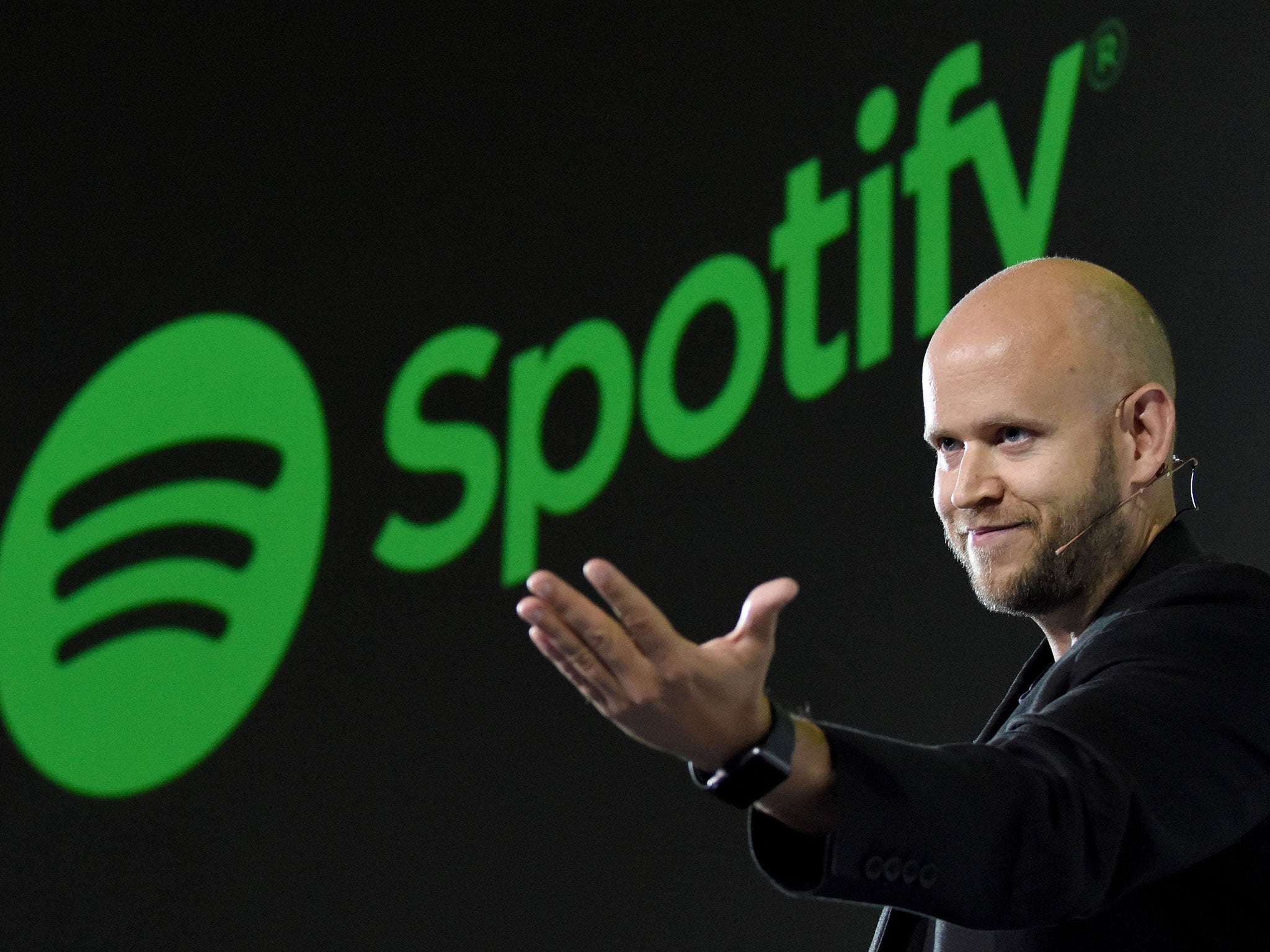Is it me or is Spotify's latest campaign creepy, voyeuristic and a little bit mean?
'Dear person who listened to the ‘Forever Alone’ playlist for 4 hours on Valentine’s Day, you OK?' is quite a painful thing to read

The day Donald Trump became President-elect I went to the pub with my colleagues to drown my sorrows. Drunk and worn out, I slumped into my seat on the night bus home, opened up Spotify and listed to ‘Bloody Motherf***ing Asshole’ by Martha Wainwright on repeat for an hour. It was an emotionally intense journey.
I can’t imagine how I’d feel if one month later, walking along the tube platform, I came across a poster which read: “Dear person who played Bloody Motherf***ing Asshole 20 times the day Donald Trump won the US election, have you calmed down yet?”
This is the situation facing a handful of Spotify listeners as the company launches its new advertising campaign utilising user data to point out just how weird 2016 has been. “Dear person who made a playlist called ‘One Night Stand with Jeb Bush like He’s a Bond Girl in a European Casino,’ we have so many questions” reads one poster. I have to admit my interest was piqued. What does an erotically charged game of Roulette with the ex-Governor of Florida sound like? The answer is: really bad electro house.
But then there’s this poster: “Dear person who listened to the ‘Forever Alone’ playlist for 4 hours on Valentine’s Day, you OK?” That’s a really creepy thing to broadcast to the world about somebody else. Maybe this user had just broken up with their girlfriend or boyfriend and was processing the feeling that maybe they would never again experience a love so pure – and you, Spotify, took it upon yourself to turn their misery into advertising fodder.
According to the music streaming service, “the campaign is designed to showcase the emotional experience of our listeners, and the stories you see are inspired by data we have.” Yes, Spotify, you nailed it – our emotional experiences, not yours. There is something intrusive about your marketing department trawling through people’s private listening habits and selling it back to us, as if you’re a friend gently ribbing us via a bus stand poster.
While broadcasting this information is in accordance with the terms of Spotify's Terms of Use and Privacy Policy, there’s something brazen about the way the company feels able to use customer information in this way.
Spotify isn’t the first company to do this. Back in 2014, Uber got in trouble for writing a blog post (which it later removed) to publicise a data trend it had spotted: the Ride of Glory. “A RoGer is anyone who took a ride between 10pm and 4am on a Friday or Saturday night, and then took a second ride from within 1/10th of a mile of the previous nights’ drop-off point 4-6 hours later (enough for a quick night’s sleep).” Basically, it used an aggregate of customer data to point out how many people in certain cities across the US used the service to catch a lift to and from a one night stand – which isn’t weirdly voyeuristic at all.
We trust companies with our personal data, bank details and at times our innermost emotions. The least they can do is refrain from playing them at full volume to the rest of the world.
Join our commenting forum
Join thought-provoking conversations, follow other Independent readers and see their replies
Comments
Bookmark popover
Removed from bookmarks